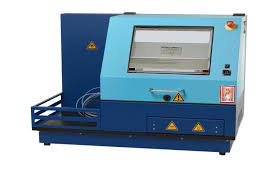
BioTrack, rapid detection of COVID-19
- 02/04/2020
BioTrack is a medical Research and Development Laboratory located in Leeuwarden in the North of The Netherlands. Biotrack develops and implements RNA/DNA-based analyses for rapid detection of human pathogens using its proprietary analysis platform consisting of hardware, wetware and software.
In a recent test, the accuracy was 100%. Not only does the machine detect the presence of COVID-19, it also indicates the viral load with high precision and speed, which is unique. This allows for more precision in diagnosing the status of a patient (if the patient is improving or deteriorating). This can help with measuring the effects of treatments more precisely. It can also help with predicting the speed of recovery of Intensive Care patients. Can be used in research projects (H2020 COVID-19, clinical trials, etc.), in hospitals (incoming patients and treatment outcomes) and in screening specific staff (e.g. doctors & nurses, food sector, pilots, military).
In light of recent developments Biotrack’ scientists have designed a rapid detection method for the direct determination of COVID-19 mRNA in human (capillary) blood, nasal
(nasopharyngeal) and throat (oropharyngeal) samples as well as stool samples on the Biotrack-platform.
The Biotrack platform, aims to provide all the analytical capabilities in one system for:
1. Positive/negative molecular detection of COVID-19 (SARS-Cov-2)
2. Viral load per analysis
3. Viral activity per analysis
4. IgM and IgG serological parameters (available within 2 weeks)
With this set of information, much more detailed monitoring is possible for immunocompromised individuals as well as those suffering from Corona either severely or
almost unnoted. It allows a much better understanding of contamination and possible development of the infection as well as detailed information on the immune response.
Capacity: Biotrack currently has a number of machines available that can be operational in the field very quickly. Each machine allows for at least 36 analyses per hour thus resulting in:
• 300 analyses per 8 hours working day (approximately)
• 750 analyses per 20-24 hours (approximately)
• 5.250 analyses per week